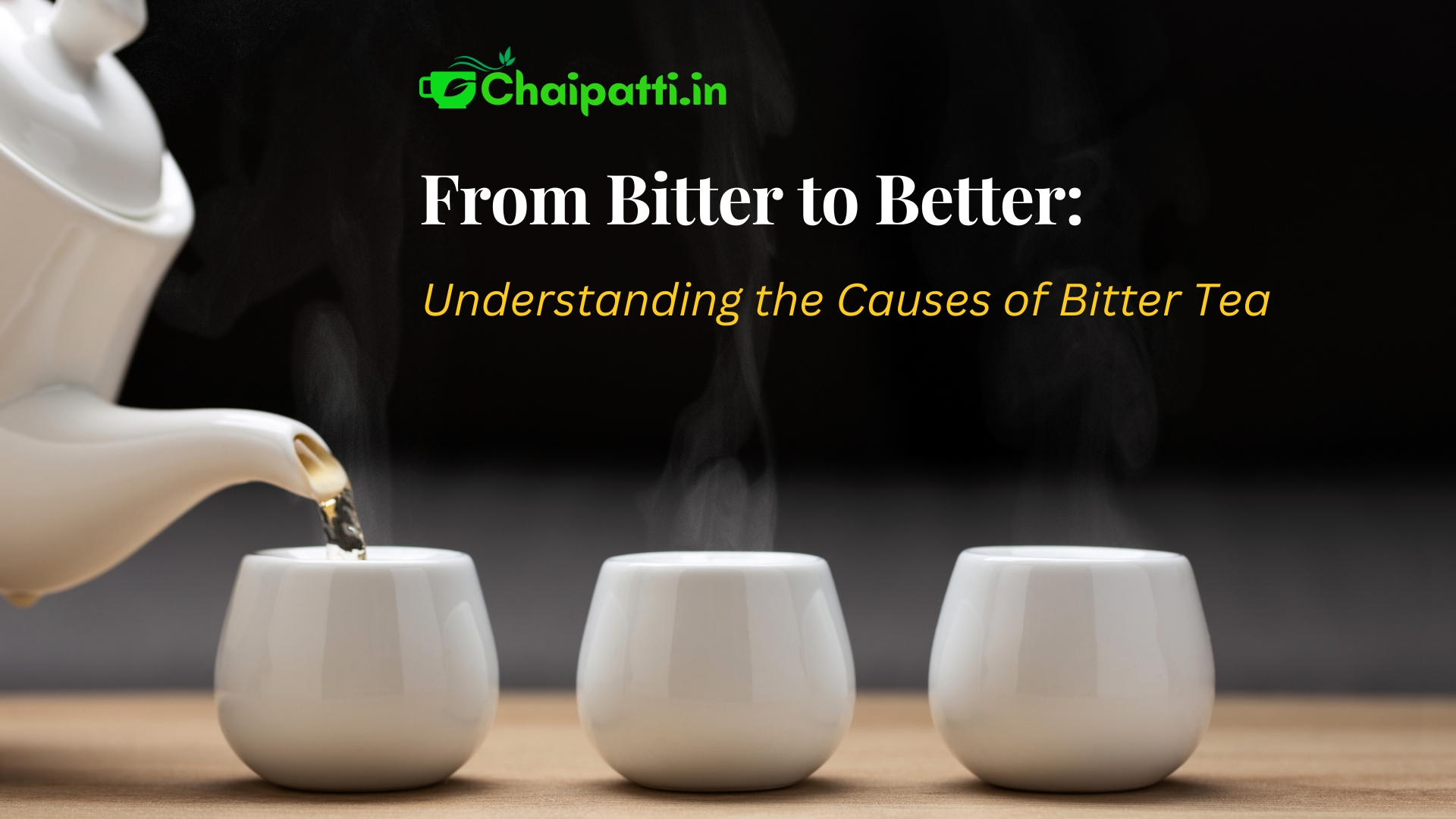- Your cart is empty
- Continue shopping

When you take a sip of tea and it tastes bitter, it’s one of the most upsetting things that can happen. If you’ve ever thought about why sometimes your tea tastes bad, don’t worry! In this blog post, we’ll talk about the most common reasons why tea tastes bad and give you tips on how to avoid getting a “Bitter Tea Face.” Get ready to drink tea that always tastes good and has the right amount of flavor.
Brewing Time and Temperature:
The wrong brewing time and temperature are one of the main things that can make a cup of tea taste bitter. For each type of tea to taste its best, it needs to be brewed in a certain way. For example, green tea is more delicate and should be brewed at a lower temperature for less time to keep it from getting bitter. On the other hand, black tea can be steeped for longer and at higher temperatures. Make sure to follow the instructions for each type of tea to make a drink that tastes good and is balanced.
Tea Quality:
The quality of the tea leaves or tea bags you use can make a big difference in how your tea tastes. Bitter tastes can be caused by older tea bags or leaves that aren’t as good. To prevent this, spend money on good tea from a reliable source. Most of the time, loose-leaf tea tastes fresher and has more flavor than tea bags. Consider going to specialty tea shops or shopping online to find a wide range of high-quality teas that will make drinking tea more enjoyable.
Water Quality:
You might not believe it, but the water you use to make tea can change how it tastes. Hard water, which has a lot of minerals, can make the tea taste more bitter and acidic. Use filtered water or spring water to make sure it tastes clean and neutral. Also, don’t boil water more than once, because that can take away air and change the taste.
Tea-to-Water Ratio:
For a tasty cup, it’s important to find the right ratio of tea leaves to water. Bitterness can happen when too much tea is mixed with water. Using too little tea can also make a weak and tasteless brew. Follow the instructions for the tea you’re using for how much to use, and make changes based on your own taste to find the perfect mix of flavors.
Storage Conditions:
If you store your tea correctly, it will stay fresh and won’t get sour. Keep your tea leaves or tea bags in a container that doesn’t let air in and keeps out light, moisture, and strong smells. Don’t store tea near spices or other smelly things because tea can easily pick up these smells and change the way it tastes.
Experiment with Steeping Techniques:
If you’ve tried all of the above tips and your tea still tastes bitter, you might want to try different ways to steep your tea. For example, instead of letting your tea steep for a long time, try a shorter time or cold making. Cold brewing can cut down on bitterness and bring out more mild flavors, making the coffee taste smoother and sweeter.
Bitter tea is a common source of annoyance, but now that you know about brewing time and temperature, tea quality, water quality, the tea-to-water ratio, storage conditions, and how to steep tea, you can say goodbye to “Bitter Tea Face” for good. With these tips in mind, you’ll be able to make a perfectly balanced and delicious cup of tea that will please your taste buds and leave you with a smile of tea-drinking bliss. Happy sipping!

